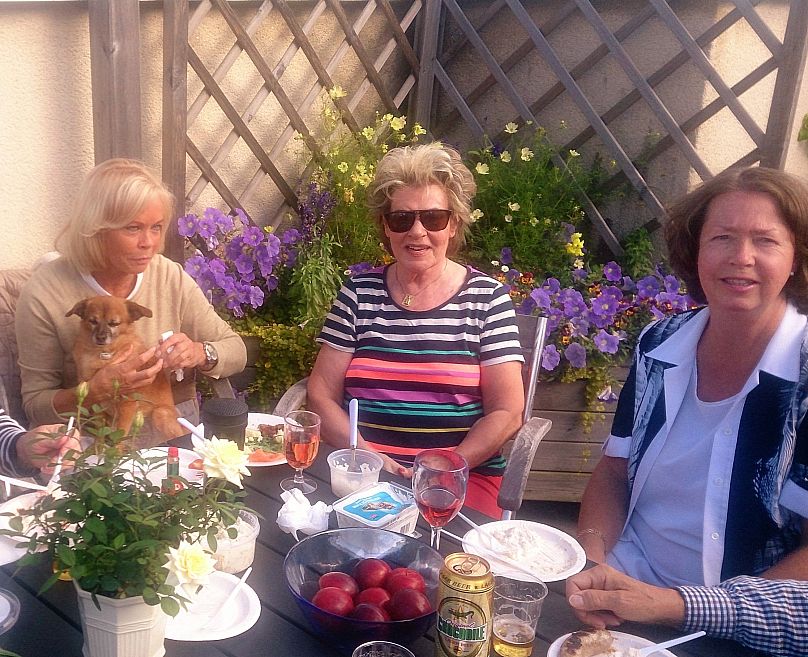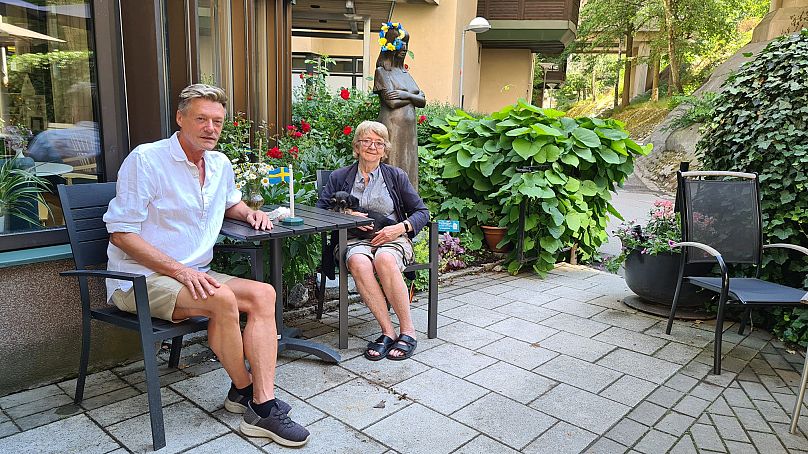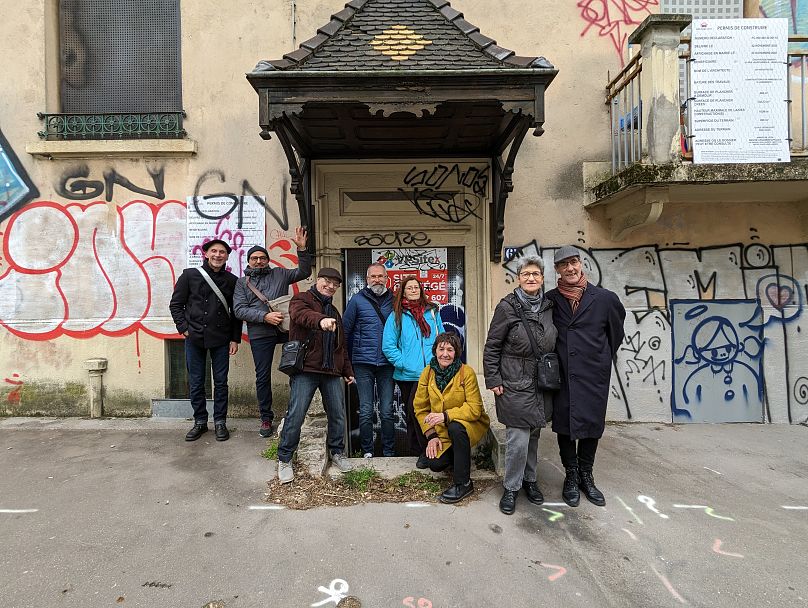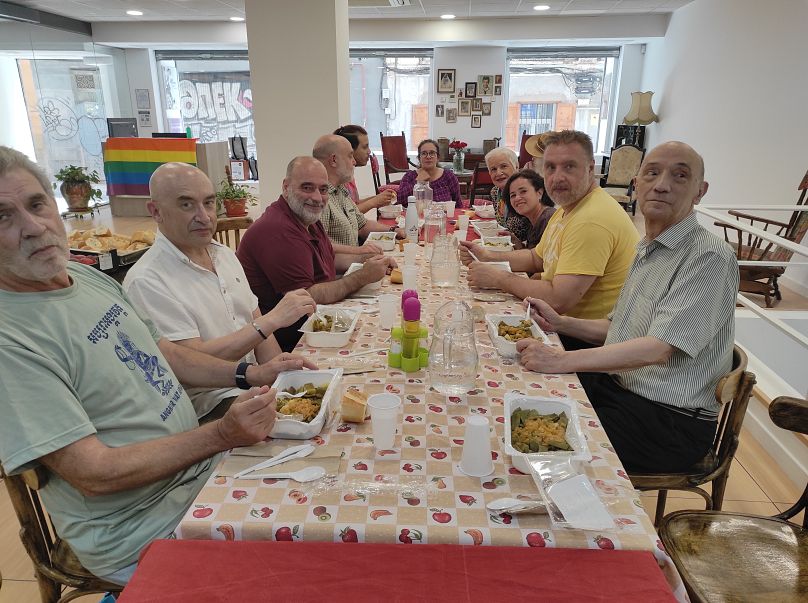Many elderly members of the LGBTQ+ community find the idea of relocating to a retirement home distressing. However, in countries like Sweden, Spain, and France, specialized retirement communities designed for LGBTQ+ seniors are gaining popularity.
“Caretakers at homes for the elderly often fail to recognize their LGBTQ+ residents; however, demographic data indicates these individuals are indeed present. The issue lies in the fact that residents lack a sense of comfort or security when it comes to identifying themselves as part of the LGBTQ+ community,” clarifies Professor Paul Willis.
a specialist in social services
.
Elderly individuals within the LGBTQ+ community may be at
higher risk of loneliness
“they are more prone to being unmarried and living solo. Additionally, they have a lower likelihood of having kids,” he explains to Euronews.
Tolong support kita ya,
Cukup klik ini aja: https://indonesiacrowd.com/support-bonus/
Nevertheless, new LGBTQ+ senior communities aimed at addressing this isolation and social exclusion are emerging throughout Europe.
Sweden
In 2013,
Regnbågen
– which means rainbow in Swedish – became Europe’s first LGBT retirement community. A decade later, more than 30 thirty residents call it home.
Situated in a tree-lined neighborhood of Stockholm, individuals who are more than 55 years old reside on the top three levels of an eight-story elderly living facility.
Christer Fällman is the brain behind the initiative; he conceived the concept of this community during his participation in Stockholm’s 2009 Pride event.
“At an event organized by senior members of the LGBTQ+ community, we discussed concerns over their future living situations,” he shared with Euronews. Although Christer was only 51 years old, a realization struck him. He pondered, “It’s true—where exactly will I spend my later years?”
Christer swiftly sprang into action and started submitting funding requests to the Stockholm City Council. After four years, the first inhabitants moved in—and much to his astonishment, Christer was among them. “I hadn’t intended to move in, but when a room opened up, I ended up being the building’s youngest tenant!”
Sweden legalized same-sex relations in 1944, and these relationships were equated with heterosexual ones in 1972. The country then went on to become the seventh nation globally to approve same-sex marriages in 2009.
Although five pairs reside in Regnbågen, the majority of inhabitants live solo.
A 72-year-old named Pia Faxén relocated recently, following her longtime companion, Monica, being diagnosed with an incurable illness.
“She shared with Euronews that they resided in a downtown apartment, which felt excessively spacious for her as a solo inhabitant. She expressed a desire to find herself in a location characterized by communal spirit, where residents looked out for each other,” she explained to Euronews.
Pia’s partner has since passed away, but she has found solace in her newly discovered “family.”
There’s no need for me to elaborate further. I chose to live among other gay individuals as we share similar experiences, allowing us to relate better to one another.
The residents can enjoy a rooftop terrace along with facilities like a hair salon and a health clinic. However, Regnbågen faces high demand with nearly 300 individuals on the waitlist for just 28 apartments. Founder Christer Fällman acknowledges that significant progress is yet to be made.
It seems to me that both the government and politicians believe that being the first in Europe to establish this type of LGBT community center is sufficient. However, we require additional such venues throughout Sweden to ensure that everybody has a spot where they belong.
France
The House of Diversity
is a forthcoming residence designed specifically for LGBTQ+ seniors scheduled to launch in Lyon by the end of 2024.
François Daudin, aged 65, is a prospective resident who is looking forward to moving in.
Francois searched for senior LGBTQ+ housing for many years before finally discovering the right project. “A lot of us don’t have kids or family nearby, yet we prefer not to be completely isolated. Unfortunately, suitable living arrangements are scarce for our community.”
He now resides on the fringes of Lyon, in a place where he feels uncomfortable displaying any outward signs of fondness for his partner when they are outside together.
“I’d never be bold enough to kiss or hold hands due to the risk of an attack. Being part of this community would provide me with a feeling of safety as well.” Homosexuality wasn’t decriminalized in France until 1982, whereas same-sex marriage only became legally recognized in 2013.
At La Maison de la Diversité, each resident will have their own apartment – some of which will have a subsidised rent – as well as access to shared communal spaces.
Similar to François, seven additional potential residents have already registered for apartments. They stay connected through WhatsApp and are presently working out how they will handle the management of the property.
“Various queries are emerging—what occurs when a tenant becomes ill? Which kinds of individuals will be permitted to reside in the facility? The tenants themselves must determine and establish these guidelines,” clarifies Stéphane Sauvé. He spearheads this initiative and manages Les
Audacieux & Audacieuses
, an outreach organization for elderly members of the LGBTQ+ community.
Stéphane dedicated years to overseeing care facilities throughout France prior to focusing entirely on his charitable work. The organization runs workshops aimed at tackling stigma surrounding sexuality and homosexuality within the elderly LGBTQ+ population.
A caregiver once inquired about the identity of the person in the framed photograph on the man’s beside table,” he recounted to Euronews. “The man struggled to find the right words but eventually claimed it was his cousin. However, the following day, he discreetly placed the photo inside his closet.
Although Stéphane acknowledges that the caregiver had good intentions in this particular case, he also highlights several instances of clear homophobic behavior.
In one of the residences I managed, there was a lesbian woman who was uniquely never invited to dance at the weekly tea parties by the other women. People whispered that these women were hesitant because they felt drawn to her.
However, Stéphane continues to stay optimistic and driven.
Our goal is to establish ten of these LGBTQ+ senior living facilities throughout France within the next decade! Stay tuned!
Spain
In Madrid, plans for Spain’s first city-supported LGBTQ+ retirement community are underway.
This will encompass 62 rooms distributed over four levels within a structure covering more than 3000 square meters.
Federico Armentero has dedicated the past 13 years to advocating for the opening of the home. He established his charitable organization accordingly.
Fundación 26 de Diciembre
following the date in 1978 when Spain decriminalized homosexuality.
He shares that Federico revealed his true self to his loved ones when he was around thirty-five years old.
I came into this world during an era marked by widespread homophobia and deeply ingrained prejudice across large sections of society. Numerous individuals from previous generations within the LGBTQ+ community have often found themselves marginalized. As a result, many do not believe they merit a space where they can find support, care, and acceptance.
As he started addressing the LGBTQ+ community regarding their retirement plans, Federico recognized that numerous elderly individuals were “extremely afraid of having to return to the closet.” He explained, “I do not wish to end up in a Catholic nursing home filled with images of the Virgin Mary; instead, I desire a facility where pictures of two women embracing could adorn the walls!”
The project is an expensive undertaking – having already invested €2.1 million euros in refurbishing the location for the upcoming facility. However, offering accessible care for the LGBTQ+ community remains at the heart of Federico’s objective.
A significant number of elderly individuals from the LGBTQ+ community survive on a monthly pension of €400. Ensuring suitable accommodation for everyone, including those facing economic challenges, is crucial.
Ten rooms at the facility will be designated for palliative care. Additionally, the option for onsite administration of euthanasia for residents is under consideration (Spain).
legalised
euthanisia in 2021).
For Federico, retirement homes ought to be seen positively since “nearly 60 positions will be filled at the facility! Instead of being considered detrimental to our nation, the senior citizens create employment opportunities and contribute to economic prosperity!”







